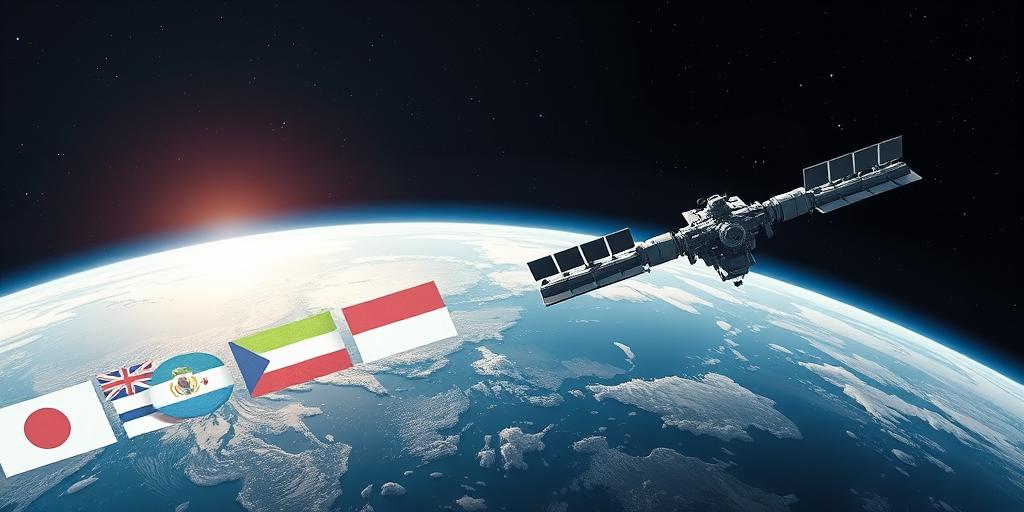The Geopolitics of Space Exploration
Space exploration, once a realm of pure scientific endeavor, has increasingly become intertwined with geopolitics. As nations push the boundaries of space technology, their activities reflect and influence international relations, strategic competition, and global power dynamics.
A Brief History: From Cold War Rivalry to Cooperation
The early days of space exploration were dominated by the Cold War rivalry between the United States and the Soviet Union. The space race was not just about technological achievement; it was a proxy battle for ideological supremacy. The launch of Sputnik in 1957 by the USSR sent shockwaves across the US, leading to a massive investment in science and technology to catch up and surpass Soviet achievements. This era saw landmark achievements like the first human in space (Yuri Gagarin) and the first moon landing (Apollo 11), both laden with political significance.
As the Cold War thawed, space exploration saw a shift towards international cooperation. Projects like the International Space Station (ISS) became symbols of collaboration between former adversaries, pooling resources and expertise to achieve common goals. However, this cooperation exists alongside continued competition, particularly as new players enter the space arena.
Current Geopolitical Landscape
Today, space exploration is no longer limited to the US and Russia. Countries like China, India, Japan, and the European Union have emerged as significant actors, each with their own ambitions and capabilities. This multi-polar landscape has introduced new dynamics in space governance, resource utilization, and security.
- China's Rise: China's rapid advancements in space technology, including its own space station (Tiangong) and lunar exploration programs, have positioned it as a major competitor to the US. China's ambitions extend beyond scientific research, encompassing resource extraction on the Moon and Mars, and the development of space-based infrastructure.
- The United States' Response: The US has responded to China's challenge by reaffirming its commitment to space exploration, with programs like the Artemis Accords aiming to establish a framework for responsible lunar exploration and resource utilization. The US also emphasizes its leadership in space security, particularly in response to concerns about anti-satellite weapons.
- Emerging Players: Countries like India and Japan are also making significant strides in space exploration. India's successful Mars Orbiter Mission (Mangalyaan) and its growing satellite launch capabilities have demonstrated its potential as a cost-effective space power. Japan's focus on asteroid exploration and advanced satellite technology contributes to the diversity of space activities.
- The Role of Private Sector: Private companies like SpaceX, Blue Origin, and Virgin Galactic have revolutionized space access, lowering costs and driving innovation. These companies are not only transforming space transportation but also influencing the geopolitical landscape by providing capabilities that were once exclusive to governments.
Key Geopolitical Issues
Several key issues define the geopolitics of space exploration:
- Space Resource Governance: The potential for extracting resources from the Moon, asteroids, and other celestial bodies has raised complex legal and ethical questions. The existing international legal framework, primarily the Outer Space Treaty of 1967, does not provide clear guidelines on resource utilization. The Artemis Accords represent an attempt by the US and its partners to establish norms, but their legitimacy is contested by countries like Russia and China.
- Space Security: The development and testing of anti-satellite weapons (ASATs) have heightened concerns about the weaponization of space. The destruction of satellites can create debris fields that pose a threat to all space assets, and the use of ASATs can escalate tensions between nations. Efforts to establish norms against destructive ASAT testing are ongoing, but progress has been limited.
- Cybersecurity in Space: Space assets are vulnerable to cyberattacks, which can disrupt satellite operations, compromise data, and cause significant economic and strategic damage. Protecting space infrastructure from cyber threats requires international cooperation and the development of robust cybersecurity standards.
- Dual-Use Technology: Many space technologies have both civilian and military applications, making it difficult to distinguish between peaceful exploration and potential military uses. This ambiguity can fuel mistrust and complicate efforts to prevent an arms race in space.
The Future of Space Geopolitics
The geopolitics of space exploration will continue to evolve as technology advances and new actors emerge. Several trends are likely to shape the future:
- Increased Competition: Competition for resources, strategic advantage, and technological leadership will intensify as more countries and private companies enter the space arena.
- Technological Disruption: Breakthroughs in areas like artificial intelligence, robotics, and advanced materials will accelerate the pace of space exploration and create new opportunities and challenges.
- Multilateral Governance: Efforts to establish a more robust international framework for space governance will continue, but progress will likely be incremental due to conflicting national interests.
- Public-Private Partnerships: Collaboration between governments and private companies will become increasingly important for achieving ambitious space goals.
Conclusion
The geopolitics of space exploration is a complex and dynamic field, shaped by technological innovation, national ambitions, and international relations. As humanity ventures further into the cosmos, the choices we make about governance, security, and resource utilization will have profound implications for the future of our planet and our place in the universe. Understanding these dynamics is crucial for policymakers, researchers, and citizens alike.









